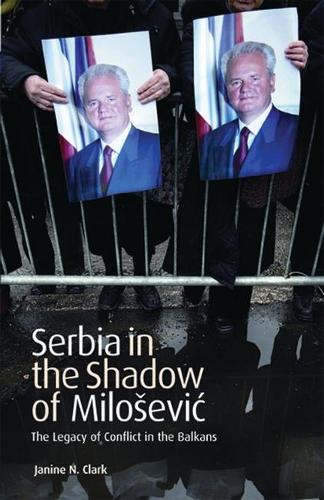
Serbia in the Shadow of Milosevic: The Legacy of Conflict in the Balkans
(Hardback)
Publishing Details
Serbia in the Shadow of Milosevic: The Legacy of Conflict in the Balkans
By (Author) Janine N. Clark
Bloomsbury Publishing PLC
I.B. Tauris
30th September 2008
United Kingdom
Classifications
Tertiary Education
Non Fiction
Political structure and processes
949.7103
Physical Properties
Hardback
248
Width 138mm, Height 216mm
Description
Since the regime of Slobodan Milosevic was spectacularly overthrown on 5 October 2000, little has been written about subsequent political developments in Serbia. The perception of Milosevic as a criminal leader who plunged the former Yugoslavia into bloodshed and used violence to achieve his aims is not widely disputed among Western observers. However, to what extent is this view of Milosevic shared by people in Serbia Here Janine Clark offers insights into and an understanding of this troubled country. She argues that many Serbs do not regard Milosevic as a criminal leader but rather as a 'bad' leader whose greatest crimes were against his own people. This has important implications for how Serbia deals with its past and for reconciliation and peace-building in the former Yugoslavia.
Author Bio
Janine N. Clark is a Leverhulme Fellow in the International Politics department at the University of Aberystwyth, Wales. She was awarded a PhD by the University of Nottingham at the end of 2005 and an ESRC-funded Postdoctoral Fellowship which she completed in 2007. As part of her work on peace-building, the politics of memory, international war crimes and restorative justice, she is now working on judicial and religious paths to peace-building in the former Yugoslavia.
